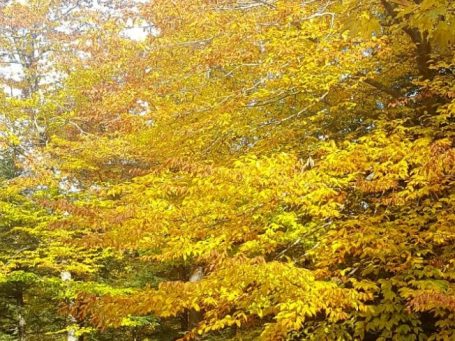The Importance of Biodiversity
By Kevin Philip
Why do each of us look different from one another? How did different features originate in all human beings?
The multitude of variations among us stem from the concept of biodiversity: the genetic variation within a population.

Without it, populations would die off due to natural selection as time went on.
But how exactly does increased biodiversity prevent natural extinction? What is the purpose of the various different genes that code for our differences?
What is Natural Selection?
To truly understand this, we must first understand natural selection. Natural selection is the process by which, over time, certain genetic traits are preferred for reproductive success over others. This may lead to the disappearance of other traits in the population, as organisms with these other traits may not be able to survive the environment, which now favors the trait promoting reproductive success. Take, for example, the prominence of black-specked moths and the decline of white-specked moths during the industrial revolution in London. The switch to coal, which powered the new industrial machines, created soot, which camouflaged the black-specked moths perfectly. As a result, they were able to hide more easily from predators, whereas white-specked moths stood out and were subsequently targeted by predators. This is a perfect example of natural selection, as over time we see the black-specked gene take over the population that was once white-specked dominated.

How does this relate to the importance of biodiversity?
The moth population survived due to the variation of a specific gene within the species, in this case, the color of the body. Had all the moths been white, it would be highly likely that the entire population of moths would have gone extinct. Biodiversity—the variation of specific genes among a population of a species—is crucial to the survival of a species through natural selection, as without the variation of genes, the population would be more susceptible to various threats that could kill them off.


But while increased biodiversity increases resistance to natural selection, how does the process of natural selection affect the traits displayed by a population?
Natural selection changes the physical composition of populations. It causes some genes to be hidden and some genes to be shown, depending on the environment. This trend can be explained by physical differences in humans. So why do all of us humans look different from one another? While patterns from natural selection stemming from our ancestors don’t fully decide that, we can credit a major part of our physical composition to this process. For example, in areas with predominantly darker people, such as South Asia, the exposure to harsh UV radiation over time caused this change as darker skin absorbs more UV radiation, leading to a healthier lifestyle. Over time, individuals with lighter skin in these areas died due to diseases such as skin cancer stemming from the radiation they were exposed to. This resulted in natural selection, causing future generations to adopt a darker skin tone.
So...
Biodiversity is the strength of a population. Without the differences in gene expression, a whole species could rapidly become extinct. So let’s appreciate the depth of gene expression in the human species, because without it, you may not have been able to read this article.
04
May
2024
Prescribed Burning
Throughout the month of April, short bursts of fire were seen in the Buffalo Creek Forest Preserve, nestled within one of the northwestern suburbs of Chicago: Long Grove. Prescribed burning—an effective strategy for maintaining the biodiversity of plants in an ecosystem—has been used all over the world and is now being implemented in the growing forests of Long Grove, Illinois. But how does burning parts of an environment actually help it? Wouldn’t that do more harm than good?




We need your consent to load the translations
We use a third-party service to translate the website content that may collect data about your activity. Please review the details in the privacy policy and accept the service to view the translations.

